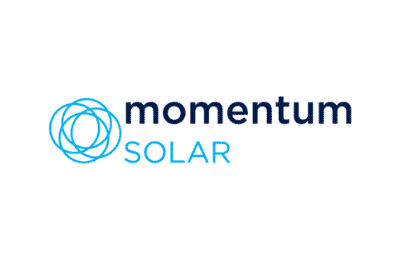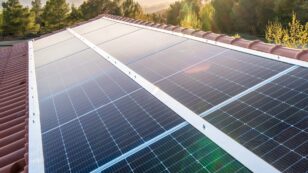
Solar Panel Cost in Florida (2024 Local Savings Guide)
We’ll answer the following questions in this guide:
- What do solar panels cost in the Sunshine State?
- How much money panels can save you on electricity bills?
- How can you get the best prices on solar panels in Florida?
Each product and or company featured here has been independently selected by the writer. You can learn more about our review methodology here. If you make a purchase using the links included, we may earn commission.
How Much Do Solar Panels Cost in Florida?
The average price of a solar panel installation in Florida is $20,367 after factoring in the solar tax credit. Without claiming the full federal solar investment tax credit (ITC), your effective total will be approximately $29,095.
The price of solar panels will always fluctuate among solar projects, as there are a variety of factors that can push your price up or down. However, the average cost per watt in Florida is $2.53. Provided you have average energy needs for the area, you’ll likely need around an 11.5 kilowatt (kW) system to meet your full demands ($2.53 x 11,500W = $29,095).

Blue Raven Solar
Pros
- Industry-leading in-house financing
- Competitive pricing
- Excellent reputation
Cons
- Doesn't offer solar batteries (coming 2022)

Momentum Solar
Pros
- Great warranty coverage
- Concierge service ensures steady communication
- Representatives are experts on local policies
Cons
- Slightly limited service offerings
- Only available in 11 states
The table below provides ballpark installation costs for different solar array sizes in Florida, along with what home size each of these options is typically suited for.
How Does the Current Cost of Solar in Florida Compare to the National Average?
Floridians can expect to pay about $1,000 less for solar equipment than most Americans. The average price of a 9 kW system in Florida is around $15,939 after the tax credit, relative to the U.S. average, which is $16,758. That means, as a Florida homeowner, you get excellent value out of each dollar you spend on your photovoltaic (PV) equipment.
How Are Solar Costs Trending in Florida?
While solar equipment is expensive, the costs nationwide have been dropping over the past few decades, and the trend in Florida is the same. According to the Solar Energy Industries Association (SEIA), the cost of panels in Florida has dropped an incredible 53% in the last ten years alone.1
As solar technology continues to advance and domestic mass production facilities become more and more popular, the likelihood is that the prices will only continue to come down. Although there’s no way to know for sure, we expect that solar equipment costs in Florida will be lower in another five to ten years, but will not continue to decrease at the same pace.
With that being said, we still believe it’s worthwhile to go solar in Florida now rather than wait for lower equipment prices. Most systems in Florida pay for themselves in just around 10 years. While you could pay less for a system in a decade, installing one now would leave you with significant energy savings at about the same time.
Additionally, news reports note that Florida’s electricity rates are expected to continue to increase.2 This is due to inflation, the increased difficulty sourcing fossil fuels and the growing challenges with electricity transmission.
By investing in solar now, you can avoid increasing energy rates and see an even greater return by locking in a low per-kilowatt-hour (kWh) rate for the life of your system. Read on to see exactly how much you may be able to save by going solar today.
How Much Can You Save By Going Solar in Florida Today?
We found the average Florida homeowner can save over $21,000 by switching to solar — after the panels pay for themselves. This number could very well be higher, as electricity rates continue to rise. In most cases, this means going solar is worthwhile in Florida.
Calculating your exact potential solar savings is difficult because there are so many factors that can affect what your system produces, how many solar panels you can fit on your roof and how efficient your system is overall.
Keep in mind that the way you pay for your PV system will have an effect on how much you save. In the sections below, we’ll explain what your estimated savings will be depending on which financing option you choose. We at EcoWatch always recommend either cash or solar loan if possible. This way, you can take the most advantage of tax credits and other incentive programs.
| Solar Financing Option | Upfront Cost (estimated) | Payback Period | Est 25-Year Savings |
| Cash | $20,000 (after tax credit) | Up to 12 years | $21,500* |
| Loan | Often $0, up to several thousand dollars | Up to 14 years | $19,325* |
| Lease | $0 | N/A | $6,000 |
*These are conservative estimates intended to represent base-level averages. In most cases, customers can see an even higher ROI and shorter payback periods.
Cash Purchase of Solar System
When purchasing with cash, we estimate that Florida homeowners can save at least $21,632 over 25 years in energy costs. Our calculations assume that your Florida home pays $128 for electricity each month. If your electricity bills are higher than $128 per month, expect your savings to increase and your payback period to shorten.
The estimated 25-year energy burden if you don’t switch to solar and continue using fossil fuels is around $50,727. Unless your home uses a far below-average amount of electricity, you should be able to expect significant savings by going solar.
When you buy your system in cash, you’ll also see the shortest payback period. Your expected monthly energy savings will be around $128, which means annual savings of over $1,500. Those savings should add up to more than you paid for your system within 12 years.
Over the remaining 13 years of expected system life, you’ll see an additional $21,000+ in energy savings. Imagine what you could do with an extra $21,000!
Keep in mind that this is only taking the federal tax credit into consideration. Any additional local tax incentives you take advantage of will decrease your initial cost, shorten your payback period and increase your total savings.
Solar Loan
A solar loan is a financing option designed specifically for solar power systems. You can choose to finance directly through your solar installation company in many cases. Alternatively, you can take advantage of special solar financing programs available in Florida, like the Property-Assessed Clean Energy (PACE) program.3 This helps keep financing costs down to maximize savings.
Your monthly payment for your loan will depend on the amount you finance and your annual percentage rate (APR). The average monthly payment is around $270.
This is higher than the average monthly electric bill in Florida, but you can pay off your loan in ten years or less, unlike electricity bills, which only grow over time.4 There are also loan programs that allow you to pay what you would normally for electricity to help reduce the burden of financing solar panels.
Keep in mind that the payback period when you finance your panels will almost always be longer than if you pay cash. The reason for this is that your all-in costs are higher because of the interest that gets tacked onto your system cost. The average payback period when financing your panels in Florida is around 14 years.
Once again, all of these numbers are based on taking just the federal tax credit. Other solar perks and incentives can make these numbers more attractive.
Solar Lease
A lease for panels is a different structure than a loan entirely. Rather than paying monthly toward owning your system, you pay a solar company a fixed monthly cost to use the solar equipment, but the company retains ownership of the panels.
Solar leases are great for some people because they typically come with no-money-down options, and they’re designed to keep monthly payments below what you pay to your utility company monthly.
The long-term ROI on a solar lease is easily the lowest of any payment option, which is a major downside of this method. However, you usually pay no money down and nothing in interest. Leases let you reduce your carbon footprint for free in many cases.
You may also hear the term power purchase agreement (PPA), which is similar in structure to a solar lease, but is not available to Florida residents.
Watch Below: Learn Whether Solar Panels Are Worth it In Florida
How Do You Get the Best Solar Prices in Florida?
With system costs averaging well over $20,000 in Florida before any incentives, most residents will naturally look for ways to keep their costs down when converting to solar. There are a handful of things we recommend you do to save money:
- File for the Federal Tax Credit
- Take advantage of local incentives
- Pass on battery systems
File for the Federal Tax Credit
First, make sure you take advantage of the federal solar tax credit. This is one of the best tax credits available, and all you need to do is file some additional paperwork with your taxes.
The ITC is for 30% of your entire system price, including what you pay for panels, batteries inverters and the solar panel installation costs. The average credit in Florida is $8,729, so this can substantially bring down your effective cost of solar panels.
Take Local Incentives
Second, if you live in Jacksonville, Boynton Beach or Dunedin, you can take advantage of some local solar incentives to reduce the cost of solar panels:
- Jacksonville offers up to $2,000 in rebates if you install a solar battery
- Boynton Beach offers up to $1,500 in rebates for installing a PV system with an efficiency of over 17.5% (includes most monocrystalline panels, but polycrystalline panels and other types of solar panels might not qualify)
- Dunedin has a grant program that provides up to $2,500 in rebates for energy produced with your system
Most residents in FL will have Duke Energy as their electric company. Duke only provides a cashback incentive for performing an energy audit on your home and for installing an electric vehicle (EV) charger.5,6 This won’t bring down your solar conversion costs, but it can help improve your home’s energy efficiency while you save money.
You can check with other utility companies, like Florida Power & Light, for emerging incentives. However, as of this writing, there were none available for home solar systems.
Pass on Battery Systems
Additionally, we recommend passing on solar batteries (for now) if your budget is tight. Energy storage systems (solar batteries) can be great in Florida because the risk of power outages is so high due to the frequent extreme weather. As such, they do boost your property value when combined with residential solar panels. However, we believe they aren’t yet worth the added cost in most cases.
You’ll pay thousands more for batteries, and they won’t save you much more in the long run. This is primarily because Florida mandates net metering, and the net metering program requires that your excess energy be credited at the retail rate. Batteries won’t help you keep energy costs down because net metering will already do that for you.
What Factors Affect the Cost of Solar Panel Systems in Florida?
Solar power systems in FL typically range from around $16,000 up to $26,500 after the federal tax credit is taken. In the sections below, we’ll discuss the primary factors that affect local solar system costs.
- The equipment you install
- System size
- Your solar installer
The Equipment You Install
The more efficient your solar panels are, the more expensive they will be. But because Florida receives so much sunlight throughout the year (around 230 days of sunshine), you may not need the latest and greatest solar technology to capture enough solar energy to power a home. This can help to reduce your overall project costs.
However, Florida is prone to extreme weather — hurricanes and tropical storms are becoming routine. If you live in an area that experiences intense winds, it may be smart to go with a brand of panel known for its durability, like REC. It may also be a good idea to pick a brand with a rock-solid warranty or a warranty offering extended coverage. These may add to your project costs as well.
Thanks to net metering, solar batteries don’t make the most sense economically in Florida. However, if your area frequently experiences severe weather, you may also want to consider a solar backup battery as an important investment. Batteries store energy and supply your home with power in the event of an outage, allowing you to stay powered even through public outages. Whether or not you choose a battery as part of your installation may be the largest determining factor of cost for Floridians.
Talk to your local installer to see what type of solar equipment is best for your needs.
System Size
The most significant installation cost factor when going solar will almost always be the size of your system. Your solar array is sized according to your energy demands and the number of panels your roof can support. Greater energy usage will drive up how large your system needs to be until your home can no longer take additional panels.
A smaller 9 kW system designed to meet moderate energy demands costs around $16,000 in Florida. If you have above-average energy demands, you might need a system at the larger end of the size range. A 15 kW system would drive your price closer to the $26,500 mark.
It’s important to remember that your system should always be sized specifically for your home and energy usage. Systems smaller than you need won’t save nearly as much money, and systems larger than you need are far less cost-effective.
For example, installing a 10 kW system could save you tens of thousands of dollars over time on your utility bills. On the same home, a 5 kW system would cost less but also might not save nearly as much for the money invested.
Your Solar Installer
The solar panel installation company you choose to handle your solar project is another important cost factor to consider. Your system is priced based on a few things:
- The equipment costs
- The labor to design your system
- The time it takes to pull permits
- The labor to install and commission your solar array
Every company can charge different prices for the equipment installed. Even an equally-sized system consisting of the exact same equipment brands can vary in price among installers because of upcharges or discounts on the equipment costs.
Additionally, the labor charges can vary from company to company. This is one reason why it’s important to shop around to find the best solar company for your Florida home; you could end up paying hundreds or even thousands of dollars less by choosing one installer over another.
Are There Any Maintenance Costs of Going Solar in Florida?
Thankfully, solar energy systems are, for the most part, fairly maintenance-free. Florida receives plenty of rain to wash pollen, dust and dirt off of your panels to maintain maximum efficiency. Beyond keeping your panels clean, your system should be fairly set-it-and-forget-it.
If you do run into issues with your solar panel system, chances are high that they will result from the extreme weather that frequents the Sunshine State. Hurricanes, cyclones and tropical storms can all put your outdoor equipment at risk of damage, especially if debris is blown into the panels.
Luckily, most of the solar brands available in Florida include lengthy and robust warranties that keep your system protected from significant damage and reduce the need for out-of-pocket maintenance costs.
With the extreme weather in mind, roofs in Florida do need replacement more often than those in most other states. Your installer should let you know if they recommend roof replacement before installing your PV system.
However, if you need replacement afterward, you could be looking at charges between $500 and $1,000 to remove and reinstall your panels before and after your roof replacement.
Typical Costs of Solar Providers In Florida
According to the SEIA, Florida is home to nearly 200 local solar installation companies, and residents also have plenty of options in terms of national and regional installers. Costs vary among each of these, and it can be time-consuming to get quotes from even a fraction of them.
In the chart below, we’ll include some relative pricing for some of the more popular installation companies in Florida.
| Solar Installer | Average Cost Per Watt ($-$$$$$) | Presence |
| SunPower | $$$$ | National |
| ADT (SunPro) Solar | $$ | National |
| Solar Source | $$$ | Regional |
| SunVena | $$$$ | Regional |
| Goldin Solar | $$ | Regional |
| Solar Bear | $$$ | Regional |
| Blue Raven Solar | $$ | National |
| Solar-Ray | $$ | Regional |
| Unicity Solar | $$$ | Regional |
| Momentum Solar | $$$ | Regional |
Read More About Going Solar
FAQs: Solar Panel Cost Florida
At EcoWatch, we’re happy to get questions about the process and costs of getting rooftop solar from Florida residents. Below are some of the questions we see most often, along with our responses. If you have specific questions that aren’t answered here, reach out to our team of solar experts at solar@ecowatch.com.
Florida does not have a state tax credit, but solar panels are exempt from sales and property taxes in Florida. This means you save 6% on your purchase, and the increase in home value that results from solar panels is not taxable. Some municipalities in Florida have their own perks and incentives as well.
Currently, there are no programs offering free solar installations in Florida. However, you can go solar for $0 down by getting a loan or by signing a lease or by finding a $0-money-down solar financing option. This way, you can start saving on electric bills right away.
The average time it takes solar customers in FL to see energy savings that pay off the cost of the system is around 12 years. This is right in line with the national payback average. Keep in mind that this timeline assumes you use the average amount of energy in your home and pay for your system in cash. Your payback period can be longer if you have higher energy needs or use another form of payment for your system.
The average cost to install a photovoltaic (PV) system in FL is around $34,960 after the federal credit is considered. This assumes an average local per-watt price of $3.04 and the average system size of 11.5 kW. If you consider the federal tax credit, that installation price could drop down to $24,472. Keep in mind that there are many factors that affect the cost of solar, so your pricing could vary considerably.
Related articles
Top Solar Installers in Florida Cities
Comparing authorized solar partners
-
- Industry-leading in-house financing
- Competitive pricing
- Excellent reputation
- Doesn't offer solar batteries (coming 2022)
A+Best Solar Financing2014Trina Solar, Canadian Solar, SolarEdge, Silfab, SunPower25-year manufacturer warranty; 10-year workmanship warranty, 2-year production guarantee
Having trouble deciding? Click below and use our process to receive multiple quotes instead:

 233k
233k  41k
41k 







